
Find Help
More Items From Ergsy search
-

Are the refunds part of a regulatory action?
Relevance: 100%
-

Do these refunds mean water companies have increased their rates fraudulently?
Relevance: 44%
-

How many UK water companies are involved in the refund process?
Relevance: 44%
-

Which UK water companies are going to refund their customers for poor performance?
Relevance: 44%
-

Which UK water companies are going to refund their customers?
Relevance: 40%
-

When will the refunds be issued by the UK water companies?
Relevance: 39%
-

Are there penalties for water companies besides issuing refunds?
Relevance: 38%
-
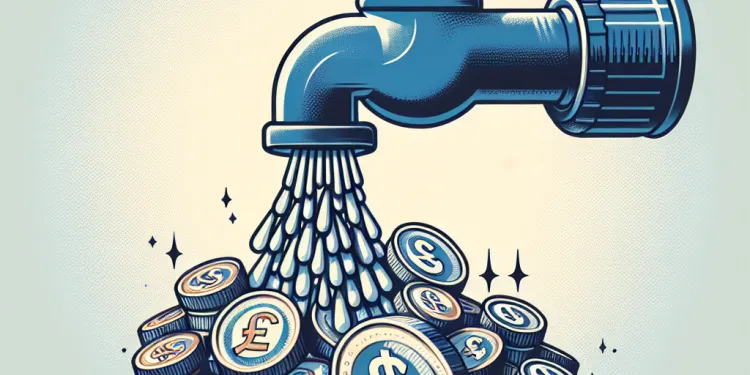
How much is being refunded in total by the UK water companies?
Relevance: 38%
-
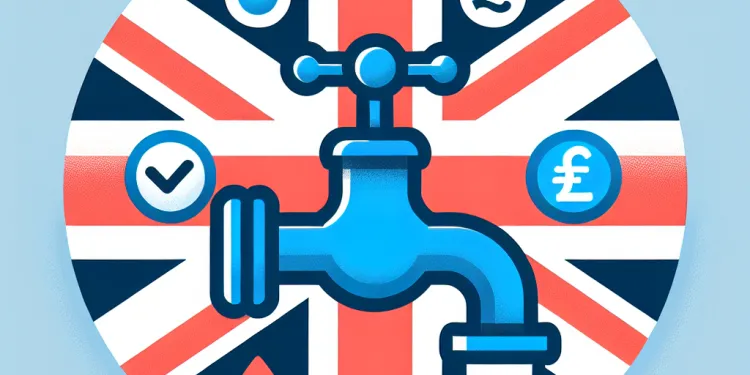
What criteria were used to determine the refunds for UK water companies?
Relevance: 36%
-
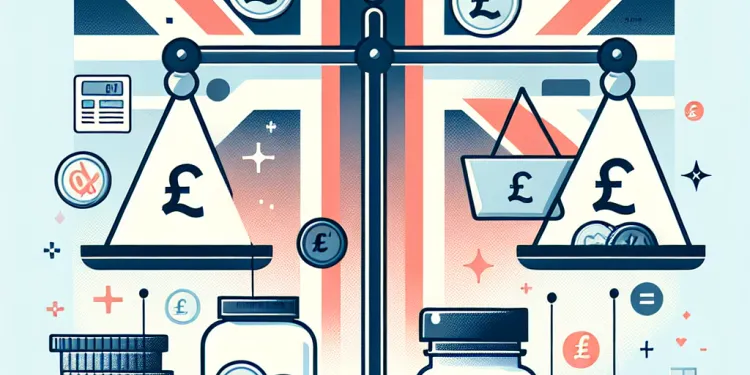
What role do regulatory bodies play in fee transparency?
Relevance: 35%
-

How will refunds affect investments towards improving water infrastructure?
Relevance: 35%
-
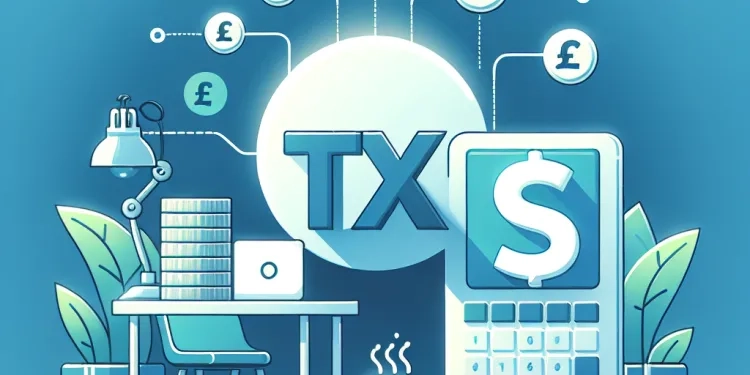
HMRC Tax Refund letters
Relevance: 35%
-

What specific performance issues led to these refunds?
Relevance: 35%
-

How do I find out if I am eligible for a refund?
Relevance: 34%
-

What is an HMRC tax refund letter?
Relevance: 34%
-

Will my council send a refund check if I overpay?
Relevance: 34%
-
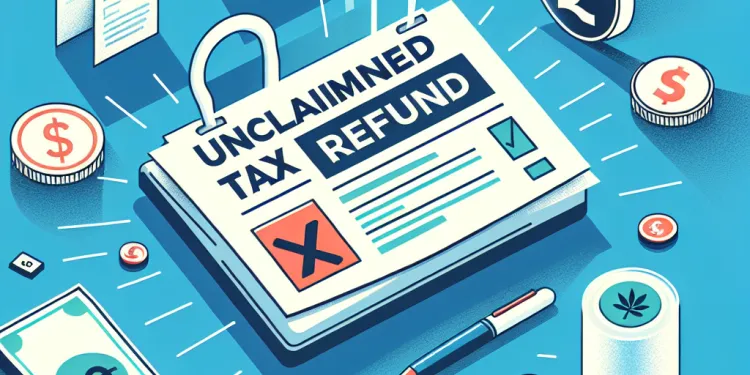
What happens if I do not claim my tax refund?
Relevance: 33%
-

What should I do if I believe the refund amount is incorrect?
Relevance: 33%
-
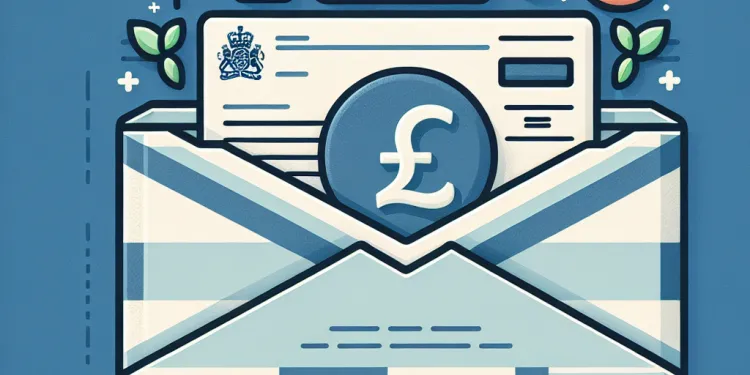
Is the tax refund amount taxable?
Relevance: 33%
-

Which body is responsible for enforcing refunds by UK water companies?
Relevance: 33%
-

Can I get a refund on my TV license?
Relevance: 33%
-

Can Stamp Duty be refunded in the UK?
Relevance: 33%
-

How is the tax refund amount calculated?
Relevance: 32%
-

What is an asthma action plan?
Relevance: 32%
-

Are refunds for overpaid Council Tax taxable?
Relevance: 31%
-

Will HMRC contact me via phone or email regarding my tax refund?
Relevance: 31%
-

How are customers being informed about their eligibility for refunds?
Relevance: 31%
-

Can customers appeal or discuss the refund amount with their water company?
Relevance: 30%
-
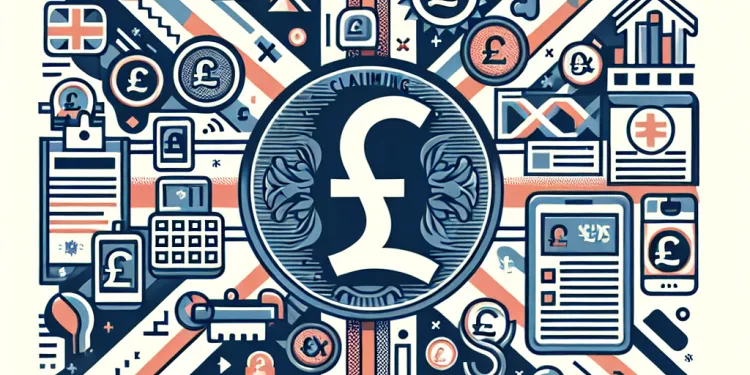
How do I claim my tax refund from HMRC?
Relevance: 30%
-

Can travel insurance be refunded if my trip is canceled?
Relevance: 30%
-

What information do I need to provide to claim my refund?
Relevance: 30%
-

Will all customers of these UK water companies receive refunds?
Relevance: 30%
-
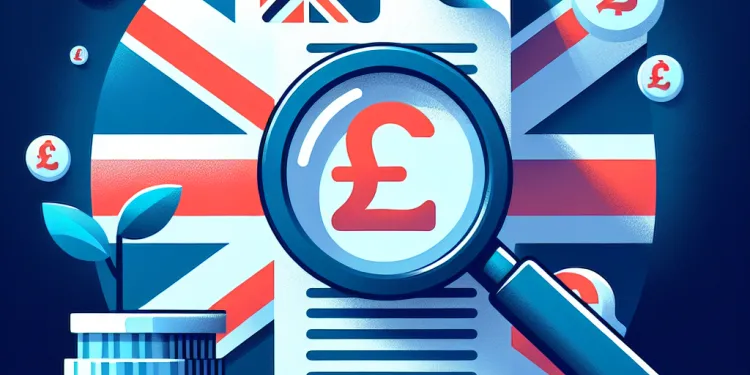
How can I verify that my tax refund letter is genuine?
Relevance: 30%
-

Can my tax refund be applied to my future tax obligations?
Relevance: 30%
-

What actions are consumer rights groups taking regarding banking fee transparency?
Relevance: 30%
-

Do I need to keep my tax refund letter for future reference?
Relevance: 29%
-

Is there a time limit for claiming a refund on overpaid Council Tax?
Relevance: 29%
-

Can I receive my tax refund directly into my bank account?
Relevance: 29%
-

I received a tax refund letter, but I haven’t overpaid any tax. What should I do?
Relevance: 29%
-

What should customers do if they have further questions about refunds?
Relevance: 29%
Understanding Regulatory Actions and Refunds
In the UK, regulatory bodies play a pivotal role in maintaining the integrity of various industries. These regulators ensure that businesses comply with legal standards to protect consumers and maintain fair competition. One aspect of regulatory action could involve mandating refunds to consumers if a company has breached regulations or engaged in unfair practices.
Regulatory Bodies and Their Roles
Different sectors in the UK are overseen by specific regulatory bodies. For instance, the Financial Conduct Authority (FCA) regulates financial markets, including banks and insurance companies. The Competition and Markets Authority (CMA) oversees competition laws, while Ofcom regulates communications services. These bodies have the authority to enforce actions, including ordering companies to issue refunds when consumers have been wronged.
Reasons for Regulatory-Driven Refunds
Refunds may be part of a regulatory action when a company is found to have violated consumer protection laws. This could involve misleading advertising, unfair contract terms, or charging hidden fees. In such cases, regulators can demand that the company in question reimburses affected customers, ensuring justice and financial restitution.
Examples of Regulatory Actions Enforcing Refunds
An example includes the energy sector in the UK, where Ofgem, the regulator for electricity and gas markets, holds energy providers accountable. If an energy company misbills customers or does not adhere to fair pricing practices, Ofgem may require the company to issue refunds to affected consumers. Similarly, in the financial sector, the FCA might compel banks to refund customers for mis-sold financial products.
Consumer Rights and Regulatory Actions
UK law provides consumers with extensive rights, including the right to fair treatment and transparent dealings with businesses. Regulatory bodies aim to uphold these rights by investigating consumer complaints and ensuring that companies adhere to lawful practices. When a company fails to comply, regulatory actions, including enforcing refunds, serve as corrective measures that reinforce consumer protections.
Impact of Regulatory Refunds
Regulatory-driven refunds not only provide monetary compensation to consumers but also serve as a deterrent against future violations by the company or industry. They act as a reminder that non-compliance with regulations can result in financial and reputational consequences. Such actions contribute to a fairer market environment and enhance consumer trust in the system.
Conclusion
In summary, refunds as part of regulatory actions are a vital tool for ensuring consumer protection and maintaining market fairness in the UK. Through the careful oversight of regulatory bodies, businesses are held accountable for their practices, and consumers are safeguarded from unfair practices. This mechanism provides reassurance that consumers have recourse in the face of corporate misconduct.
Understanding Rules and Refunds
In the UK, special groups make sure businesses follow rules. This helps keep things fair and protects people who buy things. Sometimes, if a company does something wrong, these groups can make the company give money back to people.
Who Makes the Rules?
Different groups watch over different kinds of businesses. For example, the Financial Conduct Authority (FCA) looks at banks and money companies. Ofcom watches phone and internet companies. If these companies break the rules, they might have to give money back to their customers.
Why Do Companies Give Refunds?
Sometimes, companies do things like lying in ads or having unfair rules. When this happens, the rule groups can tell them to give money back to people. This makes sure things are fair.
Examples of Refunds
In the UK, if an energy company charges wrong or unfair prices, a group called Ofgem can make them give money back. In banking, if a bank sells something that’s not good for a customer, the FCA can make them refund the money.
Consumers' Rights
In the UK, people have rights to be treated fairly. If a company does not follow the rules, the rule groups will make them fix it, often by giving back money.
Why Refunds Are Important
Refunds give money back to people and remind companies to follow the rules. They help keep the market fair and make people trust businesses more.
Conclusion
Refunds are important to keep things fair and safe for people in the UK. The rule groups make sure companies do the right thing. This helps protect everyone who buys things.
Frequently Asked Questions
What is the purpose of the refunds?
The refunds are intended to compensate consumers who were affected by a specific regulatory issue or violation.
Are these refunds part of a larger regulatory action?
Yes, the refunds are typically issued as part of a regulatory enforcement action to address violations.
Who is eligible for these refunds?
Eligibility for the refunds is determined by the regulatory body based on the nature of the violation and who was affected.
How will I know if I qualify for a refund?
You will be notified by the regulatory authority or the company involved if you qualify for a refund.
Do I need to apply to receive the refund?
In some cases, refunds are issued automatically, but in others, you may need to submit a claim form.
What prompted the regulatory action?
The regulatory action was prompted by a violation of laws or regulations identified by the enforcement agency.
What types of violations lead to such refunds?
Violations can include deceptive practices, consumer harm, or failure to comply with regulatory requirements.
How long will it take to receive the refund?
The timeline for receiving refunds varies, but recipients are usually informed of the expected timeframe.
Can I appeal if I am denied a refund?
Depending on the regulatory body, there may be an appeals process for those who believe they were unfairly denied a refund.
Are interest or penalties included with the refund?
Interest or additional compensation may be included, but it depends on the terms set by the regulatory body.
Will the refunds affect the company's financial status?
The impact on the company's finances depends on the size of the refunds and the company's financial health.
What role does the regulatory body play in issuing refunds?
The regulatory body oversees the refund process and ensures compliance with the terms of the enforcement action.
Can I refuse the refund?
You are typically not obligated to accept the refund, but it's usually in place to compensate for a wrongdoing.
What should I do if the refund is issued incorrectly?
Contact the regulatory body or the company issuing the refund to report any discrepancies.
Will receiving a refund affect any legal actions I might take?
Accepting a refund might impact your ability to take further legal action, so it's best to consult a lawyer.
Is there a deadline to claim my refund?
Yes, there is typically a deadline to claim refunds, which is usually communicated by the regulatory authority.
Who can I contact if I have questions about the refund?
You can contact the regulatory agency or the consumer support service of the company involved for inquiries.
Are these refunds taxable?
The taxability of refunds depends on your jurisdiction and specific circumstances; consult a tax advisor.
What happens if I don't receive my refund by the expected date?
If you do not receive your refund by the expected date, contact the company or regulatory agency for assistance.
Could the refunds be a result of a settlement?
Yes, refunds can be a component of a larger settlement agreement between the company and the regulatory agency.
Why do we have refunds?
Refunds give back your money if you are not happy with something you bought.
People will get money back because there was a problem with the rules.
Are these refunds part of a big rule made by the government?
If you're having trouble understanding, you can:
- Ask someone to read it with you.
- Use a tool that reads text out loud.
- Break the question into smaller parts.
Yes, people usually get refunds when rules are broken. This is because something is done to fix the problem.
Who can get these refunds?
Some people can get refunds. Let's find out if you can!
- Think about who gave you the money to begin with.
- Did something go wrong? You might get some money back.
- Use a computer or ask someone to help you check if you can get a refund.
The group in charge of rules decides who can get money back. They look at what went wrong and who got hurt.
How can I tell if I can get my money back?
- **Ask for help.** You can ask someone you trust to help you check. - **Check the rules.** There might be some rules that say if you can get your money back. - **Use a computer.** Sometimes you can find this information online. - **Call or visit.** You can call the company or visit their office to ask.If you can get a refund, the company or the people in charge will let you know.
Do I need to ask to get my money back?
If you want your money back, you might have to ask for it. This means you may need to fill out a form or talk to someone who can help. It's a good idea to check and see what you need to do.
If you find it hard to read or understand, you can ask an adult to help you. You can also use tools like text-to-speech to listen to the information.
Sometimes, you get your money back without asking. But other times, you need to fill out a form to ask for your money back.
Why did the rules change?
There was a problem because someone broke the rules or laws. The people in charge noticed and took action to fix it.
What makes you get money back?
Problems can happen when people do tricky things, hurt customers, or break important rules.
When will I get my money back?
Getting your money back can take different amounts of time. But people are usually told how long it will take.
What if I don't get my money back? Can I ask again?
If you think you should get your money back but did not, you might be able to ask for help from the people in charge. They have a way to help you if you think the decision was not fair.
Do you get extra money or have to pay extra if you get a refund?
Sometimes, you might get extra money or interest. But this depends on the rules set by the people in charge.
Will giving money back change the company's money situation?
When a company gives back money, it might have less money.
Here's how to make it easier to understand:
- Use simple words:
- "Refund" means giving money back.
- "Financial status" means the company's money situation.
- Break it down into smaller parts.
- Use pictures or diagrams to help explain.
The money situation of the company might change. This change depends on how big the refunds are and how strong the company’s money situation is.
How does the rules group help with giving money back?
The rules group makes sure people follow the rules when they give money back.
Here’s how they help:
- They check if the rules are being followed.
- They help people understand how to get their money back.
- They solve problems if people don't agree about the money.
If you need help with words or reading, you can:
- Use pictures to help understand the text.
- Listen to someone read it out loud.
- Use simple word lists.
- Ask someone you trust to explain it.
The group in charge makes sure the money is given back the right way. They check to see that everyone follows the rules.
Can I say no to a refund?
You don't have to take the money back if you don't want to. But usually, it's given when something went wrong.
What to Do if You Get the Wrong Refund?
Here is what you can do:
1. **Check the Refund**: Look at the refund you got. Is it too much or too little?
2. **Contact Support**: Tell the company. Use email, chat, or phone. Say what the problem is.
3. **Keep Records**: Save emails or notes about what was said. This helps if you need to explain the problem later.
Tools that can help:
- Friends or Family: Ask someone you trust to help explain things.
- Simple Language Tools: Use tools that make reading easier, like Read Aloud apps.
If you find a problem with your refund, tell the company or the people who gave it to you. They can help fix it.
Will getting money back change my plans to go to court?
If you take a refund, it might stop you from going to court later. It's a good idea to talk to a lawyer first.
Helpful Tools: Use pictures or diagrams to understand more. Talk to someone who knows about the law, or use simple videos to learn.
Do I have to claim my refund by a certain time?
Yes, there is usually a time limit to ask for a refund. This time limit is often told to you by the people in charge.
Who do I ask if I have questions about getting my money back?
You can ask questions by talking to the people who make the rules or the customer help team of the company.
Do you have to pay tax on refunds?
If you get a tax refund, you might need to pay tax on it. It depends on where you live and your special situation. It's a good idea to talk to someone who knows about taxes to help you understand what you need to do.
What if I don't get my money back on time?
If you do not get your money back when you should, ask the company or the people in charge for help.
Are the refunds because of an agreement?
Yes, getting a refund can be part of a bigger deal between the company and the people who make the rules.
Useful Links
This website offers general information and is not a substitute for professional advice.
Always seek guidance from qualified professionals.
If you have any medical concerns or need urgent help, contact a healthcare professional or emergency services immediately.
Some of this content was generated with AI assistance. We’ve done our best to keep it accurate, helpful, and human-friendly.
- Ergsy carfully checks the information in the videos we provide here.
- Videos shown by Youtube after a video has completed, have NOT been reviewed by ERGSY.
- To view, click the arrow in centre of video.
- Most of the videos you find here will have subtitles and/or closed captions available.
- You may need to turn these on, and choose your preferred language.
- Go to the video you'd like to watch.
- If closed captions (CC) are available, settings will be visible on the bottom right of the video player.
- To turn on Captions, click settings .
- To turn off Captions, click settings again.
More Items From Ergsy search
-

Are the refunds part of a regulatory action?
Relevance: 100%
-

Do these refunds mean water companies have increased their rates fraudulently?
Relevance: 44%
-

How many UK water companies are involved in the refund process?
Relevance: 44%
-

Which UK water companies are going to refund their customers for poor performance?
Relevance: 44%
-

Which UK water companies are going to refund their customers?
Relevance: 40%
-

When will the refunds be issued by the UK water companies?
Relevance: 39%
-

Are there penalties for water companies besides issuing refunds?
Relevance: 38%
-

How much is being refunded in total by the UK water companies?
Relevance: 38%
-

What criteria were used to determine the refunds for UK water companies?
Relevance: 36%
-

What role do regulatory bodies play in fee transparency?
Relevance: 35%
-

How will refunds affect investments towards improving water infrastructure?
Relevance: 35%
-

HMRC Tax Refund letters
Relevance: 35%
-

What specific performance issues led to these refunds?
Relevance: 35%
-

How do I find out if I am eligible for a refund?
Relevance: 34%
-

What is an HMRC tax refund letter?
Relevance: 34%
-

Will my council send a refund check if I overpay?
Relevance: 34%
-

What happens if I do not claim my tax refund?
Relevance: 33%
-

What should I do if I believe the refund amount is incorrect?
Relevance: 33%
-

Is the tax refund amount taxable?
Relevance: 33%
-

Which body is responsible for enforcing refunds by UK water companies?
Relevance: 33%
-

Can I get a refund on my TV license?
Relevance: 33%
-

Can Stamp Duty be refunded in the UK?
Relevance: 33%
-

How is the tax refund amount calculated?
Relevance: 32%
-

What is an asthma action plan?
Relevance: 32%
-

Are refunds for overpaid Council Tax taxable?
Relevance: 31%
-

Will HMRC contact me via phone or email regarding my tax refund?
Relevance: 31%
-

How are customers being informed about their eligibility for refunds?
Relevance: 31%
-

Can customers appeal or discuss the refund amount with their water company?
Relevance: 30%
-

How do I claim my tax refund from HMRC?
Relevance: 30%
-

Can travel insurance be refunded if my trip is canceled?
Relevance: 30%
-

What information do I need to provide to claim my refund?
Relevance: 30%
-

Will all customers of these UK water companies receive refunds?
Relevance: 30%
-

How can I verify that my tax refund letter is genuine?
Relevance: 30%
-

Can my tax refund be applied to my future tax obligations?
Relevance: 30%
-

What actions are consumer rights groups taking regarding banking fee transparency?
Relevance: 30%
-

Do I need to keep my tax refund letter for future reference?
Relevance: 29%
-

Is there a time limit for claiming a refund on overpaid Council Tax?
Relevance: 29%
-

Can I receive my tax refund directly into my bank account?
Relevance: 29%
-

I received a tax refund letter, but I haven’t overpaid any tax. What should I do?
Relevance: 29%
-

What should customers do if they have further questions about refunds?
Relevance: 29%


